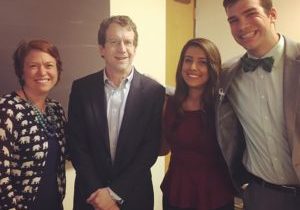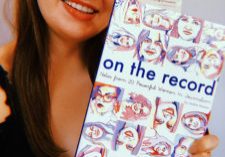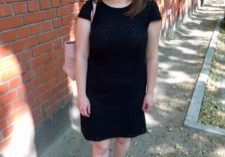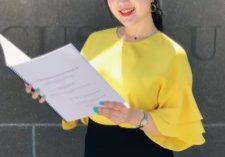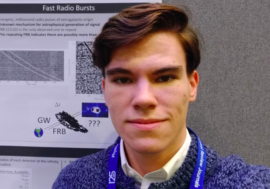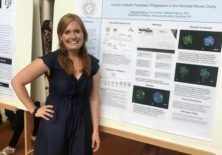Using Your Personal Story
By Giovanna Saccoccio
 You might hear your professors say that your personal story is your best asset and needs to be integrated in your scholarship. Through her Capstone, Hasmik Djoulakian (AS ‘17) fully understood the weight and power of bringing poetry about her personal life into her academic analysis.
You might hear your professors say that your personal story is your best asset and needs to be integrated in your scholarship. Through her Capstone, Hasmik Djoulakian (AS ‘17) fully understood the weight and power of bringing poetry about her personal life into her academic analysis.
Hasmik’s Capstone, titled Literary Interventions into Genocide: A Feminist Reading of Texts by Zabel Yesayan, looks at the texts written by Zabel Yesayan, an Armenian writer, activist, and teacher who lived through the Armenian Genocide and the rise to power of the Soviet Union in her country.
Haskim analyzed the literary devices Yeseyan used in her writing, as well as the political practices she enacted in her advocacy and reporting work, through a colonial, critical feminist lens. Hasmik, a Women’s and Gender Studies major, believes her Capstone has given her a framework to re-articulate her relationship with her history on her own terms.
Her relationship with the texts was in fact affected by the ways her family history interlocks with the events and issues Yeseyan discusses. Just as Yeseyan’s writings are acts of feminist recovery, so this Capstone was Hasmik’s attempt to articulate her history of diaspora and erasure from a feminist standpoint.
Hasmik used her Crown Award to procure translations of a book and a variety of documents, as well as to subsidize travel costs so that she could travel to Armenia and access archives there.
Hasmik believes the best part of doing her Capstone to be the transformative insecurity and vulnerability to look at her story through Yeseyan’s. Still, she maintains that the biggest challenge was to trust herself enough to produce a project she could be proud of and that she could write faster.
Hasmik’s adviser, Himika Bhattacharya, was an instrumental source of advice and helped her focus on her writing and deepen her ideas.
As for what advice she would give to future Honors Capstone students, Hasmik recommends starting early and getting different perspective on your work from as many people as you can. She also believes that, as long as it is early enough in the process, students should not be afraid of adjusting their projects if they find a new thread they are excited about.

